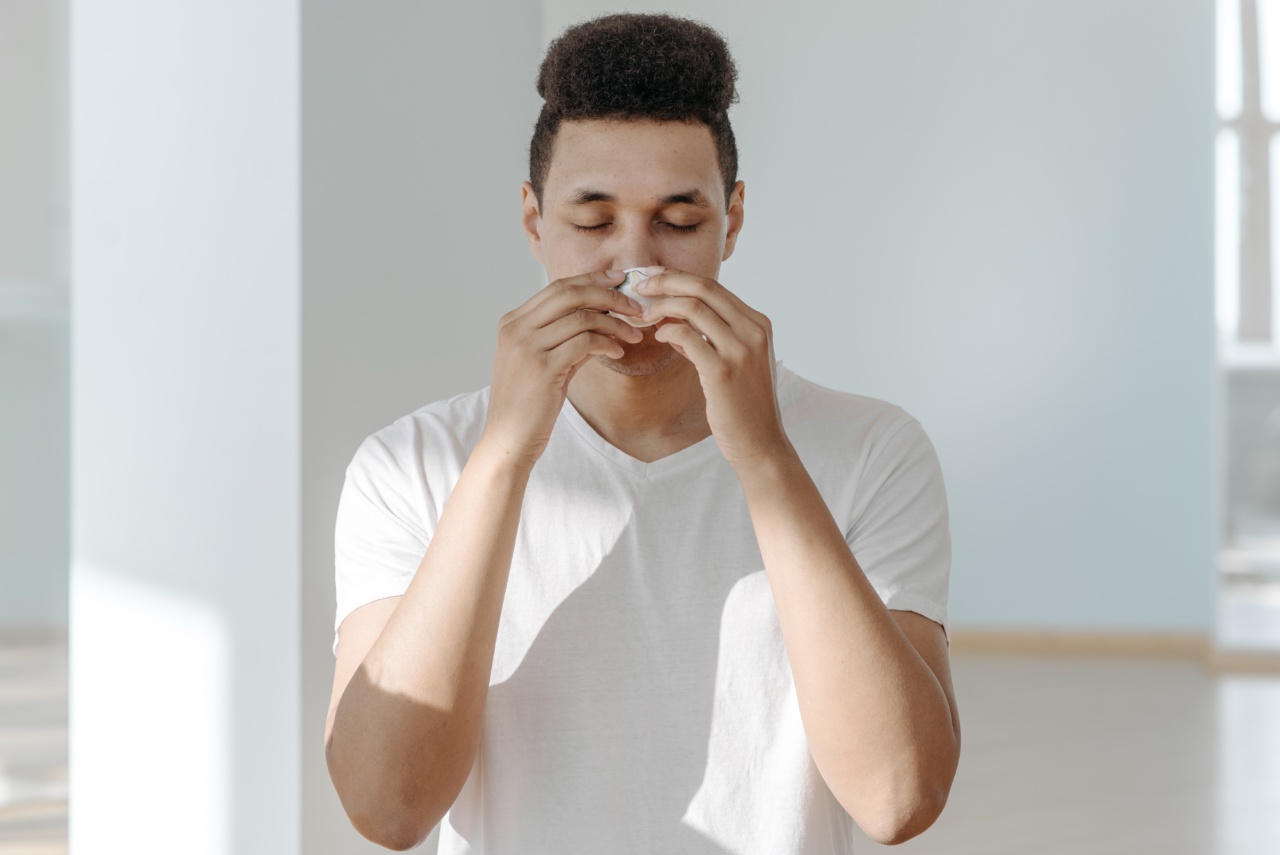Spring is a beautiful time of year, with flowers blooming and warmer weather. However, for many people, spring also means the onset of allergy season.
The increased pollen in the air can trigger a range of allergy symptoms such as sneezing, itching, watery eyes, and congestion. While there are several over-the-counter medications available, they often come with unwanted side effects. As an alternative, acupuncture has gained popularity as a natural and effective way to relieve spring allergy symptoms.
Understanding Spring Allergies
Spring allergies, also known as hay fever or seasonal allergic rhinitis, occur due to an abnormal immune response to pollen from trees, grasses, and weeds.
When we inhale these allergens, our immune system mistakenly identifies them as harmful substances and overreacts, releasing chemicals such as histamine.
The release of histamine leads to a variety of allergic symptoms, including:.
- Sneezing
- Runny or stuffy nose
- Itchy or watery eyes
- Coughing
- Fatigue
- Headache
How Does Acupuncture Help?
Acupuncture is a form of traditional Chinese medicine that involves inserting thin needles into specific points on the body.
This ancient practice is based on the concept of Qi (pronounced “chee”), which refers to the vital energy that flows through the body.
According to traditional Chinese medicine, allergies occur when there is an imbalance or blockage in the flow of Qi. Acupuncture aims to restore the balance and promote the free flow of Qi throughout the body.
When it comes to spring allergies, acupuncture provides the following benefits:.
1. Reduces Inflammation
Inflammation is a common response triggered by allergies. The insertion of acupuncture needles stimulates the release of endorphins, which are natural painkillers and anti-inflammatory agents.
By reducing inflammation, acupuncture helps alleviate allergy symptoms and provides relief.
2. Modulates the Immune System
Acupuncture has been found to modulate the immune system, helping to regulate immune responses and prevent overreactions to allergens. This modulation can help reduce the severity of allergy symptoms and make the body more resilient to allergens.
3. Relieves Nasal Congestion
One of the most bothersome symptoms of spring allergies is nasal congestion. Acupuncture can help relieve congestion by clearing the nasal passages and promoting better airflow.
By improving the flow of Qi in the affected areas, acupuncture can provide instant relief from a stuffy nose.
4. Alleviates Itchy Eyes and Sneezing
Itchy eyes and excessive sneezing can significantly impact daily activities. Acupuncture targets specific points related to the eyes and respiratory system, providing relief from itching, redness, and sneezing.
By regulating the body’s response to allergens, acupuncture helps control these bothersome symptoms.
5. Reduces Dependence on Medications
Many over-the-counter allergy medications come with unwanted side effects such as drowsiness and dry mouth. Acupuncture offers a drug-free alternative for managing spring allergies.
By addressing the root cause of allergies, acupuncture can help reduce dependence on medications and their associated side effects.
What to Expect During an Acupuncture Session
During an acupuncture session for spring allergies, a licensed acupuncturist will assess your symptoms, medical history, and overall health. They will then insert thin needles into specific acupuncture points associated with allergy relief.
These needles are usually left in place for around 15-30 minutes while you relax.
Some people may feel a mild tingling or slight pressure when the needles are inserted, but overall, acupuncture is a gentle and generally painless procedure.
Many individuals find acupuncture sessions to be quite relaxing, with some even falling asleep during the treatment.
Is Acupuncture Safe?
When performed by a licensed and trained acupuncturist, acupuncture is considered safe. The needles used are sterile, single-use, and disposable, ensuring there is no risk of infection.
It is important to disclose any underlying health conditions, medications, or allergies to your acupuncturist before starting the treatment.
This information will help them customize the acupuncture session to suit your specific needs and ensure safety.
Additional Tips for Managing Spring Allergies
In addition to acupuncture, there are several other lifestyle modifications you can make to manage spring allergy symptoms:.
- Avoid going outside during peak pollen times, typically early morning and late afternoon.
- Keep your windows closed and use air purifiers to minimize pollen exposure indoors.
- Wash your hands and face frequently to remove any pollen particles.
- Consider wearing a pollen mask when doing outdoor activities.
- Keep pets away from areas where pollen may collect, such as freshly mowed lawns.
- Include immune-boosting foods in your diet, such as fruits, vegetables, and probiotics.
- Stay hydrated to help flush out any allergens from your system.
- Consider using nasal saline rinses to keep your nasal passages clear.
- Avoid smoking and exposure to other irritants that can worsen allergy symptoms.
- Consult with a healthcare professional or allergist for personalized advice and treatment options.
Conclusion
Acupuncture offers a natural and effective way to relieve spring allergy symptoms without the unwanted side effects of medications.
By addressing the underlying imbalances in the body, acupuncture can help reduce inflammation, modulate the immune system, and provide relief from nasal congestion, itchy eyes, and sneezing. If you’re tired of the constant battle with spring allergies, give acupuncture a try and enjoy the beauty of the season without suffering.






























